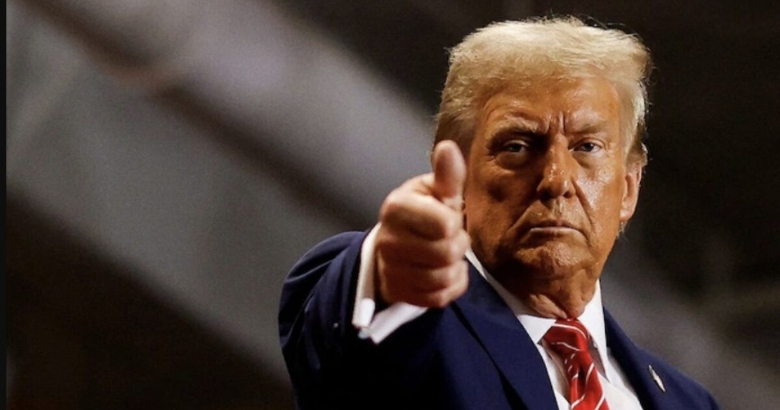As President Joe Biden prepares to leave office in January, attention is turning to one of the most controversial powers of the presidency: executive clemency. Biden’s potential last-minute pardons or sentence commutations have sparked speculation, with observers debating who might receive such an extraordinary reprieve before his exit.
While the Biden administration has offered no indication of specific plans for pardons, political analysts and media reports have compiled lists of possible candidates. These range from family members to political allies, and even some of his critics or adversaries, underscoring the weight and potential ramifications of his final acts as president.
At the top of any speculative list is Hunter Biden, the president’s son, whose legal troubles have been front-page news for years. Hunter was convicted in June of federal gun-related crimes and pleaded guilty in September to nine tax law violations. His sentencing is scheduled for December, creating a timeline that places his legal fate squarely in the final weeks of his father’s presidency.
Throughout his tenure, President Biden has repeatedly asserted that he would not intervene in his son’s legal issues. However, as a lame-duck president with little left to lose politically, Biden may reconsider to shield Hunter from further prosecution and punishment. A preemptive pardon could not only spare Hunter immediate consequences but also block future legal action related to his alleged crimes.
Another category of potential clemency recipients includes individuals who have been vocal opponents of President-elect Donald Trump. With Trump returning to the White House in January, some Democrats fear he may pursue investigations or prosecutions against those he perceives as adversaries.
This group could include figures like Special Counsel Jack Smith, New York Attorney General Letitia James, and Manhattan District Attorney Alvin Bragg—officials involved in legal actions against Trump. Judges such as Juan Merchan and Arthur Engoron, who presided over cases against Trump, could also be considered, as could outspoken anti-Trump politicians like former House Speaker Nancy Pelosi, Adam Schiff, Liz Cheney, and Adam Kinzinger.
Such pardons, though unprecedented, would reflect growing calls from some Democrats for Biden to shield these individuals from potential political retribution.
Wikileaks founder Julian Assange also emerges as a possible recipient of a last-minute pardon. Earlier this year, Assange pleaded guilty to charges under the Espionage Act, avoiding a potential 175-year prison sentence for publishing classified U.S. documents.
The case has drawn significant criticism from both Democrats and Republicans, as well as press freedom advocates, who argue it sets a dangerous precedent for prosecuting journalists and could have a chilling effect on First Amendment rights.
A bipartisan effort in Congress, led by Reps. Thomas Massie (R-KY) and James McGovern (D-MA), has urged Biden to pardon Assange, framing it as a necessary step to protect journalistic freedom. A pardon would likely be met with bipartisan approval but would also provoke fierce debate over its implications.
Perhaps the most unexpected candidate for a Biden pardon is President-elect Donald Trump himself. While Trump faces ongoing legal battles stemming from several prosecutions, many of these cases have been delayed or dismissed following his election.
A pardon for Trump would be framed as a move to heal the nation, preventing these legal issues from overshadowing his administration or fueling further division. Such an action would echo President Gerald Ford’s 1974 pardon of Richard Nixon, which was intended to move the country past the Watergate scandal.
Though this would be a bold and controversial gesture, Biden might view it as a “final act of statesmanship” to reduce polarization and avoid prolonged legal distractions during Trump’s presidency.
Presidential pardons have historically been a subject of controversy, especially when issued in the final days of an administration. These decisions, while entirely legal, can appear politically motivated or self-serving. For Biden, the optics of pardoning his son, political allies, or even his successor will undoubtedly invite scrutiny and debate.
However, proponents argue that pardons can also serve as tools for justice and reconciliation. Whether protecting whistleblowers like Assange, addressing overreach in the justice system, or preventing political witch hunts, Biden’s use of this power could be seen as a reflection of his broader legacy.
With just weeks remaining in Biden’s presidency, speculation over potential pardons will only intensify. While no official announcements have been made, the decisions he makes—or chooses not to make—will have lasting implications for his administration’s legacy and the political landscape as a whole.
Whether sparing Hunter Biden, shielding Trump’s critics, or issuing an unexpected pardon to Trump himself, Biden’s final acts of clemency will undoubtedly be among the most scrutinized of his presidency. The nation now watches to see how he wields this significant and controversial power.


Biden doesn’t have a,”Statesman” bone in his body.
This was another, “I nominate a loser that would piss off Pelosi and Hussein!”, moment.
How is it possible to pardon someone that hasn’t been charged with any crimes ? Never mind that there’s no conviction for any crime . It only enforces the belief that they did do something illegal .